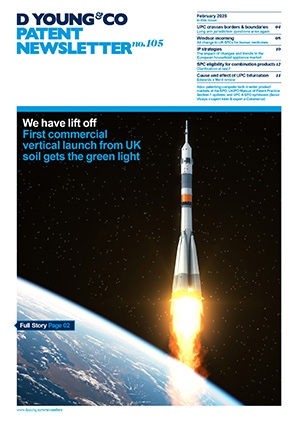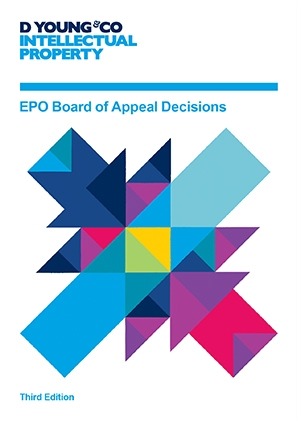T 1197/18: clarification of the video conferencing order issued on G 1/21
T1197/18 provides some clarity on the scope of the term “impairing” in the order concerning video conferencing (ViCo) issued on G1/21 by the Enlarged Board of Appeal.
Background
New Article 15a RPBA, which came into force on 01 April 2021, allows a European Patent Office (EPO) Board of Appeal to hold oral proceedings pursuant to Article 116 EPC by video conference if the Board of Appeal considers it appropriate to do so, either upon request of a party or of its own motion. This article was introduced in light of the Covid-19 pandemic and the associated travel restrictions.
In the much-discussed case G 1/21, the Enlarged Board of Appeal issued the order in which it ruled that: “During a general emergency impairing the parties’ possibilities to attend in-person oral proceedings at the EPO premises, the conduct of oral proceedings before the boards of appeal in the form of a video conference is compatible with the EPC even if not all of the parties to the proceedings have given their consent to the conduct of oral proceedings in the form of a video conference.”
Notably, the order limited the referred question and it did not address the issue whether oral proceedings by video conference may be held without the consent of the parties in the absence of a period of general emergency. In addition, the order did not address the issue whether oral proceedings by video conference may be held without the consent of the parties in examination or opposition proceedings before the EPO’s departments of first instance.
At the time of writing this article, we are still waiting for the reasons behind the decision to be issued. In the meantime, recent decision T 1197/18 helps to provide some clarity on what the term “impairing” in this order means.
T 1197/18
Most of the stringent travel restrictions in Europe had been lifted at the time of this decision (26 July 2021). For this reason, the Board of Appeal considered whether the order of the Enlarged Board of Appeal could still apply; the oral proceedings in G1/21 had taken place about two months earlier at the end of May 2021.
In this case, the respondent-proprietor requested oral proceedings be held by videoconferencing and the appellant-opponent disagreed. The Board of Appeal informed the parties that oral proceedings would be held by video conference on 26 July 2021.
At oral proceedings, the appellant-opponent argued that there was no impediment to in-person oral proceedings as evidenced by the presence of the respondent-proprietor’s representative at oral proceedings in Munich on 22 July 2021. They argued that by using the term “impairing” the Enlarged Board of Appeal was aiming at a degree of impairment such that the party could not participate in the oral proceedings without undue effort such as in situations where travel to the EPO was practically impossible or subject to quarantine.
The respondent-proprietor replied arguing that the trip to Munich the previous week was very complicated and the situation was changing daily.
Findings of the Board of Appeal
The Board of Appeal noted that the Enlarged Board of Appeal chose to use the term “impairing” in the order and considered that the term referred to a degradation of conditions rather than an impossibility. The Board of Appeal held that the term “impairing” should considered as “compromising” and not “preventing”.
The Board of Appeal held that it was irrelevant that the respondent-proprietor’s representative was present during oral proceedings before another Board of Appeal in Munich a few days before this case. It went on to point out that it is not possible for the Boards of Appeal to follow in detail the regional health situation in all the member states and the evolution of air traffic from day to day and to continually adapt the form of the oral procedures which had already been fixed. What mattered was the respondent-proprietor had faced difficulties in attending and the appellant-opponent had not shown these difficulties were not real.
The Board of Appeal concluded that the Covid-19 pandemic constitutes a case of a general state of emergency which is likely to compromise the possibility of participating in the oral proceedings in person on the premises of the EPO because of degraded travel conditions. In these circumstances, and in accordance with decision G 1/21, the holding of the oral proceedings before the board by video conference is compatible with the EPC, even if one party has not given consent. Consequently, the decision to hold the oral proceedings face-to-face or by video conference is left to the discretion of the Board of Appeal.
The Board of Appeal noted that there are cases which would be impossible to deal with in a video conference - such as when it is necessary to inspect objects during oral proceedings - but this case was not one.
The Board of Appeal dismissed the appellant-opponent’s request for adjournment of the oral proceedings until they can take place in person.
Take home messages
- Despite an easing of travel restrictions, the order in G1/21 continues to apply at the time of writing.
- The decision to hold oral proceedings face to face or by video conference remains at the discretion of the Board of Appeal.
- Videoconferencing may be used for oral proceedings when travel is practically impossible or subject to quarantine during a general emergency (such as the Covid-19 pandemic).
- Videoconferencing may also be used for oral proceedings when the ability to travel is compromised during a general emergency (such as the Covid-19 pandemic).
- If it is necessary to inspect objects during oral proceedings then in-person oral proceedings should be held.
If you prefer oral proceedings to be held by videoconferencing, it remains useful to write to the Board of Appeal explaining your travel difficulties due to the pandemic and file any appropriate evidence.
If you consider it necessary to have face-to-face oral proceedings, for example, the inspection of an object is required during proceedings, you may file such a request explaining the reasoning together with any supporting evidence. You may even wish to request a postponement.


